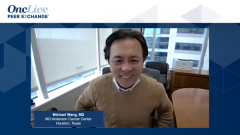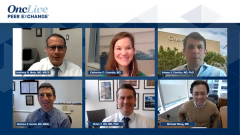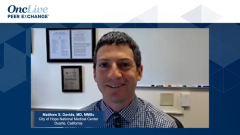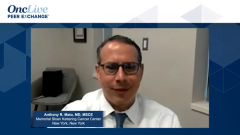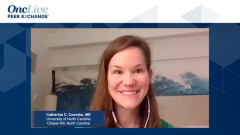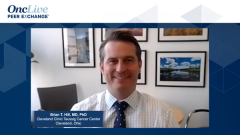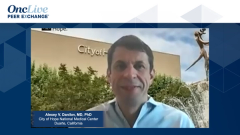
Advancements on the Horizon in Mantle Cell Lymphoma
Thought leaders in hematologic malignancies reflect on studies of ROR1 and share perspectives on advancements on the horizon for mantle cell lymphoma.
Episodes in this series

Anthony R. Mato, MD, MSCE: Alexey, I'm going to round out the mantle cell lymphoma (MCL) section because we could go on and on talking about this all day. There's so much new, but we're sort of roaring into a new era here. That's my attempt at a bad joke. Can you comment at ROR1 as a target? There [are] a few different approaches that are being developed: antibody-drug conjugates (ADCs), naked antibodies, small molecule inhibitors, [and] CAR (chimeric antigen receptor) T[-cell therapy]. There’s a list. What's likely to be our first agent available to patients? Can you describe the data to support its use or not?
Alexey V. Danilov, MD, PhD: ROR1 is within the Wnt signaling pathway. It's expressed on MCL cells and CLL (chronic lymphocytic leukemia) cells as well. It seems so far [that] the best data with ROR1 targeting agents comes from MCL studies. Like you said, [there are] multiple strategies. There are ROR1 targeting CAR-T cells emerging, as well as naked antibodies, [and] ADCs. VLS101 has a very good data with 50% response rate and multiple effects in MCL. A recent study presented at [the 2022] ASCO (American Society of Clinical Oncology) [Annual Meeting] combined ROR1 targeting antibody with ibrutinib with a median progression survival rate of 36 months. Although [this is only from] a small number of patients, this is promising in direct comparison to BTK (Bruton tyrosine kinase) inhibitors alone. We will certainly need more data on these agents. Right now, the data [are] still very limited. All of these agents are being developed. It seems that the ADCs have the most data so far and [are] going to proceed with the large phase 2 study, so we'll see what the data shows.
Anthony R. Mato, MD, MSCE: Final question for MCL. I want Alexey, Michael, and Brian to limit yourselves to a 1-word answer, if possible. Speaking to agents that are not yet approved, what is most exciting to you as of 2022? One word. Brian?
Brian T. Hill, MD, PhD: Pirtobrutinib.
Anthony R. Mato, MD, MSCE: Michael?
Michael Wang, MD: Pirtobrutinib.
Anthony R. Mato, MD, MSCE: Oh, this is easy. Alexey?
Alexey V. Danilov, MD, PhD: Bispecific.
Anthony R. Mato, MD, MSCE: Got it, okay.
Transcript has been edited for clarity.


